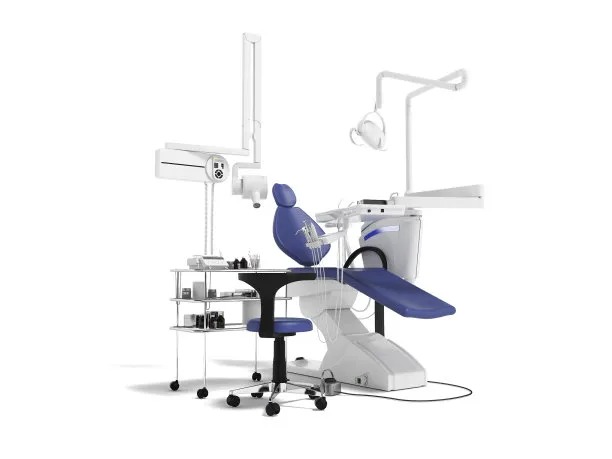Summary: Dental implants have emerged as a revolutionary solution for individuals suffering from missing teeth, providing not only aesthetic enhancements but also significant improvements to oral health. This article explores the various benefits of dental implants, highlighting their role in restoring functionality, enhancing psychological well-being, preventing bone loss, and their long-term cost-effectiveness. Through comprehensive insights, we aim to illuminate how dental implants can lead to healthier lifestyles and increased confidence, transforming smiles while supporting overall dental health.
1. Restoring Functionality and Comfort

One of the most significant advantages of dental implants is their ability to restore functionality to individuals with missing teeth. Unlike dentures or bridges, dental implants are securely anchored into the jawbone, providing a stable foundation for chewing and speaking. This stability improves the overall eating experience, allowing patients to enjoy a diverse range of foods without the worry of discomfort or shifting appliances.
Furthermore, dental implants mimic the structure of natural teeth, which enables patients to bite and chew with improved efficiency. This restoration of normal function not only enhances the quality of life but also contributes to better nutrition. By restoring chewing capabilities, individuals can incorporate more nutritious foods into their diets, crucial for maintaining overall health.
Comfort is also significantly improved with dental implants. There’s no need for messy adhesives or the constant adjustments often required with removable dentures. Once healing is complete, patients often forget they even have an implant, as it feels just like a natural tooth.
2. Enhancing Psychological Well-being
The psychological impact of missing teeth cannot be underestimated. Many individuals suffering from tooth loss experience decreased self-esteem and social anxiety, often avoiding social situations due to embarrassment about their appearance. Dental implants can dramatically improve self-image by restoring confidence in one’s smile.
Being able to smile freely, talk confidently, and engage without the fear of tooth loss allows individuals to reclaim their social lives. The emotional benefits of having a complete smile extend beyond just personal confidence; it can also enhance the quality of personal relationships and create positive accumulative effects on mental well-being.
Moreover, studies show that individuals with implants tend to report higher satisfaction levels in comparison to those with removable dentures. This isn’t just about appearance; it’s about the profound impact a confident smile can have on one’s life.
3. Preventing Bone Loss and Health Complications
Missing teeth can lead to significant bone loss in the jaw. When teeth are absent, the stimulation that keeps the jawbone healthy is lost, which can result in a weaker bone structure over time. Dental implants are unique in that they not only fill in the gaps but also stimulate the bone, preventing further deterioration.
By integrating with the jawbone through a process called osseointegration, dental implants encourage bone growth, ensuring that the structure of the face remains intact. This preservation of facial aesthetics is crucial in maintaining a youthful appearance, preventing the sunken look that can accompany tooth loss.
Moreover, the health risks associated with bone loss can extend beyond just aesthetics. Compromised bone density can lead to other oral health complications, including shifting teeth and bite misalignment, which can cause additional oral health problems. Hence, opting for dental implants is not just a cosmetic decision; it is a critical health choice.
4. Long-term Cost-effectiveness of Implants
Many individuals are deterred by the initial costs associated with dental implants; however, when considering the long-term benefits, they often prove to be a more cost-effective solution. Unlike other options like dentures that may need frequent replacements and adjustments, dental implants are designed for durability.
The longevity of dental implants, with proper care, can last decades—far surpassing the lifespan of traditional dental solutions. Additionally, having a solid and functional solution reduces the need for subsequent dental procedures, making them a financially wise investment in dental health.
Furthermore, because dental implants help maintain jawbone integrity and oral health, they can lead to overall reduced healthcare costs in addressing complications related to missing teeth. In conclusion, though the upfront investment may seem substantial, the long-term savings and health advantages of dental implants cannot be overlooked.
Summary:
In summary, dental implants serve as a revolutionary solution for missing teeth, offering improvements in functionality, psychological well-being, preventive health aspects, and long-term cost-effectiveness. The choice to pursue dental implants not only transforms smiles but also enriches lives through enhanced confidence and overall better health.
This article is compiled by Vickong Dental and the content is for reference only.
Vickong Dental
Vickong Dental is a large medical group established in Hong Kong in 2008 by professors from well-known medical universities in Guangdong and Hong Kong, as well as medical doctors from key national '985' universities (including Master's supervisors and senior professors). The chain of branches brings together expert dentists with PhDs and Master's degrees from Hong Kong and Mainland China, committed to providing high-quality dental treatment.
"Vickong Dental Practices the University Motto of 'Healing and Serving Society,' with a Stable Operation for Sixteen Years. It Has Been honored with Hong Kong Enterprise Leaders's Choice,' and is a Global Trusted Implant Center for the Nobel Implant System. Recommended by Hong Kong Metro Broadcast and Guangdong Television, it Serves Customers from Over Thirty Countries and Regions, Gaining the Trust and Favor of Citizens from the Guangdong-Hong Kong-Macau Greater Bay Area and Surrounding Cities.

Thousands of customers' unanimous praise
The most recognized and highly recommended dental service by customers in the Guangdong-Hong Kong-Macau Greater Bay Area
We Ensure You Receive Detailed Care and Attention Here
Hong Kong standards, Shenzhen prices, Your Trusted English-speaking dentists

Vickong Dental Medical-Grade Instrument Disinfection Process
Vickong Dental Medical-Grade Instrument Disinfection Process

Vickong Dental Chain: A Warm and Comfortable Environment for Treatment






Appointment Hours

Q&A
Why choose Vickong Dental?
Vickong Dental practices the university motto 「Medicine to Benefit Society」, with each branch bringing together highly qualified dentists with doctoral and master’s degrees from Hong Kong and the Mainland, and has maintained seventeen years of steady operation。Recipient of 「2024 Hong Kong Enterprise Leaders Brand」, 「2025 Hong Kong Enterprise Leaders Brand」, a Nobel Biocare Global Trusted Implant Center, and a brand recommended by Metro Radio Hong Kong and Guangdong TV。
To date, we have served customers from more than thirty countries and regions,earning exceptionally high word-of-mouth recognition and trusted recommendations from residents across the Guangdong-Hong Kong-Macao Greater Bay Area and surrounding cities
We have eight major branches in Zhuhai、Shenzhen,and a consultation and service assurance center in Hong Kong,so you can book a free consultation at any time for any questions,which is very reassuring.
If I do not accept the quotation after the CT scan, will I be charged??
No! As long as the actual treatment has not started, you will not be charged any fees.
Will there be any additional charges during the treatment process?
No, there won’t be any additional charges. Before treatment begins, we will clearly explain the treatment plan and its corresponding fees. Only after the patient agrees and signs the consent form will we proceed with the dental service.
Can I pay in Hong Kong dollars?
Yes. Vickong Dental accepts payment in Hong Kong dollars. The amount will be converted based on the exchange rate of the day, and the applicable rate will be clearly communicated to you in advance.
Can I reschedule my appointment at any time?
Yes. Please contact us via **WeChat** or **WhatsApp** as early as possible, providing your original appointment time and details, along with your preferred new date and time slot for rescheduling.













